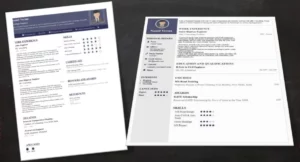20 Interview Questions and Important Tips for fresh Civil Engineer Job
- By
- Pooja |
- August 12, 2020 |
- Civil Engineering, Interview Tips,

Table of Contents
Scenario-Based Interview Question
When answering interview questions
If you receive a job interview call for a fresh civil engineering position, how would you prepare yourself for interview questions?
Don’t worry, we are here to help.
Fresh graduate job interview questions are generally divided into three categories:
- General Interview Questions
- Technical interview questions
- Scenario-Based Interview Questions
Initial Preparation before attending the interview:
- Make sure to record the interview time, address and set a calendar reminder on your phone.
- Provide enough travel time on the day of the interview and reach 10 minutes before the time of the interview to give yourself enough breathing space.
- Note down interviewer names properly, you would need that upon arrival.
- Wear a formal outfit as well as clean shoes, so dress appropriately. Remember first good impression means half job done.
- Review the company details and division you are applying to.
- Think of a few questions to ask the interviewers.
- It is recommended to bring fresh copies of your CV or applications for the interview.
- If you’re applying for a fresh civil engineer position, you should expect to receive a wide range of questions, industry-specific to personal – so be prepared!
General Interview Questions
1. Why did you choose the Civil Engineering degree? Which modules/projects/topics did you find most enjoyable and most difficult or challenging?
Suggestion - Your need to think about this answer not only for the interview purpose but also for your own clarity as well. If you are unsure why have chosen Civil Engineering, then you may not be able to fight the external challenges wholeheartedly.
2. What is/was your final-year project/dissertation.
Suggestion - Your final year project is your first attempt to conceptualise a real-world project, so make sure you present it with full clarity and confidence.
3. Share an example where you face a technical problem and you solved it.
Suggestion - Here you can mention a technical problem during your final year project or any other practical problem that you may have faced e.g – during a topo survey with the team, any group-based project, etc. you should try to demonstrate your leadership skills or technical skills or project management skills here.
4. In your internship, what technical knowledge did you learn?
Suggestion- It's very important to choose your internship properly during your second year or third year because that will be more likely your potential field for employment. This means, if you have completed your internship at a building construction site or design office, you will get your first exposure in the Building construction field so, you would be more comfortable answering building industry-related questions.
But having said that, it’s not impossible to move to another field if you explain your learning and lessons from that internship and why you prefer to switch.
5. What is your understanding of AutoCAD for drawing production and the role of Building Information Modeling (BIM)?
Suggestion: AutoCAD is one the most important drawing preparation tool and it is recommended to know the use of AutoCAD at least to a basic level. Please read this blog "Type of Civil Engineering Drawings" for details. BIM is a new technology in the industry and rapidly expanding its footprint in every civil engineering sector. You can find loads of detail through search.
The gcelab.com also shares a blog on this topic. Please click here for details.
6. Where do you see yourself professionally within the Civil Engineering Industry in five years’ time?
Suggestion: There is no right or wrong answer to this question. You may have your vision and career plan for yourself. But if it does meet with the company vision for that potential employee, it may be set in your favour. So you can plan your answer accordingly.
7. What are the most relevant skills that you could bring to this job?
Suggestion: if you are fresher, it's very important to showcase your softs skills and some hands-on experience on some pilot projects or Dummy projects. This will help them to consider you as a potential candidate for the role.
We have published a blog “how to get a job with no experience”, please read that for details.
Technical Interview Question
For highway engineering role:
- What is the key design stages of a highway infrastructure project?
- What is the relation of transition length and superelevation in horizontal curvature design of alignment?
- What are the key criteria of Roundabout Design?
- What is the purpose of checking the deflection radius in Roundabout Design?
- How do you design Full Depth Construction Road Pavement?
There are many important questions of highway engineering that you can prepare easily by attending the online highway engineering course of gcelab.com. Similarly, if you are attending Traffic Engineering and Drainage Engineering Fresher job interview, you can prepare yourself easily if you attend online courses of Traffic Engineering and Drainage Engineering of gcelab.com.
Please see the Freeview of those courses on our YouTube Channel.
Scenario-Based Interview Question
- Explain a situation where you needed to prepare a plan an activity or workflow to solve an engineering problem.
- Explain a situation where you had led a project with a diverse team member and complex situation and ultimately successfully completed the project.
- Tell us a situation where you or your team has made mistakes. How did manage it and what lessons did you learn from it.
When answering interview questions
- please note that your interviewer is not essentially looking for the clear cut correct answer. They want to see how you approach the question and how’s your body language comes out. A calm and composed body language with a thoughtful answer would showcase you as a professionally competent person.
- If you don’t understand a question, ask for further explanation. Don’t hesitate to ask it.
- If you don’t know the answer or you have inadequate knowledge of a topic. Don’t get panic. Stay calm and explain what you do know and then explain how to approach it to solve the problem.
At the end of the interview, you will get an opportunity to ask any question or query you may have. This is an opportunity to showcase your enthusiasm for the potential job, so ask them about the company project where you would potentially land if selected. If you are looking for some specific soft skill training, you can mention it.
If you have any personal constraints or medical issues, make sure you discuss them. In the end, please remember an interview is a two-way process where a potential employer and potential employee talk to each other to achieve a common goal which is to find the possibility of working together.
Every interview will enrich you with a certain level of learning for sure regardless of the outcome.
So it's always an advantage for you. Good Luck!!
Admin, gcelab.com Please see our Pillar Post to know why we founded gcelab.com.
Read More:
- How to become a successful Highway Engineer – 6 Key Points
-
How to make a successful career as Civil Engineer- 5 Points Mantra
-
30 Most demanding and useful design software for Civil Engineers

Pooja
Founder at gcelab.com, Pooja is an Entrepreneur unlocking human potential. Working in the Principles of Lean Start-up, Pooja believes in Transparency and User Happiness the most. Pooja’s background in teaching gives her a sophisticated grasp on even the most tedious aspect of course building. She is passionate about people who believe that good is not enough.

